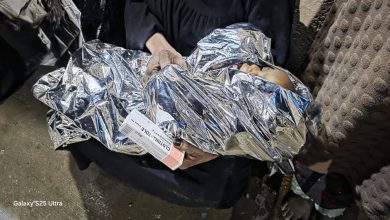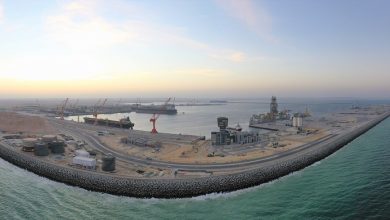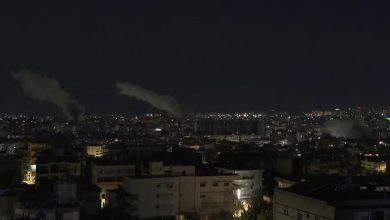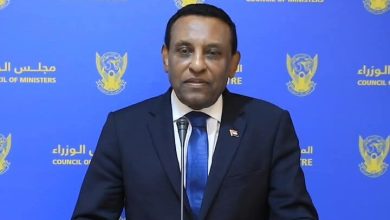InternationalNews
China and Iran: The Middle East is Not a Geopolitical Battlefield
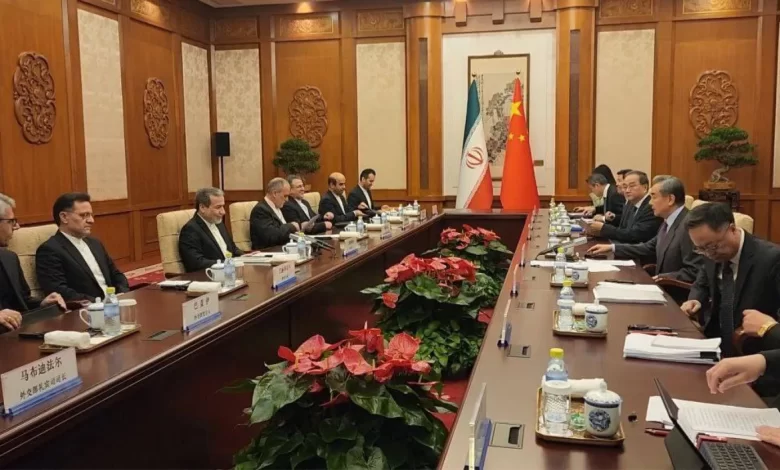
On Saturday, senior diplomats from China and Iran agreed that the Middle East is “not a battleground for major powers” and should not be a stage for geopolitical competition by countries from outside the region.
Chinese Foreign Minister Wang Yi and his Iranian counterpart, Abbas Araqchi, emphasized during their consultations in Beijing that the “international community must respect the sovereignty, security, stability, unity, and territorial integrity of Middle Eastern countries,” according to a statement issued by the Chinese Ministry of Foreign Affairs.
This is Araqchi’s first visit to Beijing since he was appointed Iran’s Foreign Minister in August, in response to an invitation from his Chinese counterpart.
The two ministers agreed that “the Middle East belongs to its people, and its interests should not be sacrificed for the interference and ambitions of foreign countries… It should not become a victim of geopolitical competition and conflicts between countries from outside the region.”
The statement added, “The international community must fully respect the sovereignty, security, stability, unity, and territorial integrity of Middle Eastern countries, and play a constructive role in promoting peace and stability in the region.”
The ministers also stated that “the path to achieving stability and calm in the Middle East is through political solutions based on international law, without foreign intervention,” as reported by the Iranian Ministry of Foreign Affairs.
The statement emphasized “support for the continued development of relations between Iran and Saudi Arabia, as well as ongoing consultations and dialogue between countries in the region.”
The two major trading partners reiterated their call for a ceasefire in Gaza, the withdrawal of Israeli forces, the delivery of humanitarian aid, and the proper implementation of a ceasefire in Lebanon.
Regarding developments in Syria, the ministers called for efforts to “combat terrorism, achieve reconciliation, and enhance humanitarian operations.”
Araqchi told reporters in a video posted by Iranian state media upon his arrival in Beijing on Friday that the visit was taking place at a “timely” moment. He added, “We are currently facing a sensitive situation both regionally and internationally… There are many issues on the international level, and our nuclear file will face challenges in the coming year that require further consultations,” according to the Agence France-Presse. He continued, “The invitation from our Chinese friends was for the same reason; as we enter a new year, we must think together, consult, and prepare for the upcoming challenges.”
Araqchi warned in an article published in Chinese media against “destructive interference” in Syria’s future, stating that decisions “should be made solely by the Syrian people.”
In the article published in the Chinese-language People’s Daily on Friday, Araqchi wrote that Iran considers decision-making regarding Syria’s future the responsibility of the Syrian people alone, “without destructive interference or foreign impositions.” He also stated that Iran “respects Syria’s unity, sovereignty, and territorial integrity.” He noted that both Iran and China share the view that calling for a ceasefire is a priority for the Middle East.
Tehran has received a warning from the new Syrian leadership regarding attempts to “spread chaos in the country.” This follows a statement from Iranian Supreme Leader Ali Khamenei last week, in which he expressed expectations for “a group of strong, honorable Syrians” to stand against “insecurity.” He indicated that Syrian youth should “stand firmly against those who planned and executed this state of insecurity and will overcome them.”
Araqchi pointed out in his article that supporting the Syrian people is a “fundamental principle” that all actors must consider.
China and Iran have both supported Syria’s ousted President Bashar al-Assad. Beijing is Iran’s largest trading partner and a major buyer of its oil.
Comprehensive Strategic Partnership
The Iranian Ministry of Foreign Affairs stated that both sides emphasized the desire of the leaders of the two countries to strengthen and develop their strategic relations.
The Iranian Foreign Ministry also mentioned that the consultations between Wang Yi and Araqchi covered the latest developments in economic, trade, investment, energy, and transportation relations, as well as ways to enhance bilateral cooperation and expand cooperation under the comprehensive cooperation program between the two countries.
The two sides positively assessed the progress made in implementing the terms of the comprehensive strategic partnership between Iran and China in recent years.
Regarding Iran’s nuclear program, the Chinese Foreign Ministry, following the meeting on Saturday, stated that Beijing “strongly supports Iran in protecting its legitimate rights and interests.”
Wang Yi expressed that “China opposes the frequent use of sanctions and pressure, and strongly supports Iran in protecting its rights and interests.”
Wang Yi urged the Iranian side to continue mutual support on issues related to their core interests and to steadily promote practical cooperation.
In October, Chinese President Xi Jinping pledged to enhance relations with Iran during talks with his Iranian counterpart Masoud Bezhkishan in Russia on the sidelines of the BRICS summit.
Araqchi and his delegation also met with the new Secretary-General of the Shanghai Cooperation Organization (SCO), Nurlan Yermakbayev, where the Iranian minister highlighted the organization’s significant role due to its inclusion of important and influential countries in regional and international transformations, including two permanent members of the UN Security Council (Russia and China), along with large economies and several key regional actors.
Araqchi stated, “The organization can play an influential and growing role in promoting multilateralism and strengthening cooperation among member states in various security, political, and economic fields.”
Iran joined the Shanghai Cooperation Organization, which includes 10 main members, in July 2023.
